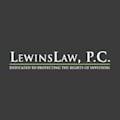Top Philadelphia, PA Securities Lawyers Near You
Our nationally acclaimed, experienced attorneys hold employers accountable for mismanaging 401(k)s, 403(b)s, pensions, ESOPs & protect employees' rights, retirement & investments.
Se Habla Español
Free Consultation
Virtual Appointments
An Experienced Investment Loss Attorney Dedicated to protecting the rights of investors.
Free Consultation
Top Rated, Expert Securities Litigation Defense Attorneys with Decades of Experience. Call Today So We Can Help You!
Securities Lawyers/Law Firm With Experience Handling NASD, FINRA, NYSE, AAA, and Pacific Stock Exchange Securities Arbitrations and Securities Litigation in State and Federal Courts
Se Habla Español
Free Consultation
1650 Market St, Suite 3600, Philadelphia, PA 19103
123 S. Board Street, Suite 1030, Philadelphia, PA 19109
550 E. Swedesford Rd., Suite 270, Wayne, PA 19087
100 N 18th Street, Two Logan Square, 12th Floor, Philadelphia, PA 19103
One Logan Square, Suite 2000, Philadelphia, PA 19103-6996
2000 Market Street, Suite 2300, Philadelphia, PA 19103
Centre Square West, 1500 Market St, Suite 3400, Philadelphia, PA 19102
30 South 17th Street, Philadelphia, PA 19103
2000 Market Street, 20th Floor, Philadelphia, PA 19103
1735 Market St, Suite 3300, Philadelphia, PA 19103
161 Washington Street, Eight Tower Bridge, Suite 1025, Conshohocken, PA 19428
Two Commerce Square, 2001 Market Street, Suite 3100, Philadelphia, PA 19103
2005 Market St, 29th Floor, Philadelphia, PA 19103
1500 Market Street, 12th Floor, East Tower, Philadelphia, PA 19102
One Liberty Place, 1650 Market Street, Philadelphia, PA 19103
1800 JFK Blvd, Suite 403, Philadelphia, PA 19103
1760 Market Street, Suite 600, Philadelphia, PA 19103
16 General Warren Blvd., PO Box 3001, Malvern, PA 19355
18 Campus Blvd, Suite 100, Newtown Square, PA 19073
131 West State Street, Doylestown, PA 18901
500 Office Center Dr, Suite 400, Fort Washington, PA 19034
2001 Market St, Two Commerce Square, Suite 2620, Philadelphia, PA 19103
401 East Elm Street, Conshohocken, PA 19428
1650 Market Street, Suite 3600, Philadelphia, PA 19103
1717 Arch St, Suite 610, Philadelphia, PA 19103
Philadelphia Securities Information
Lead Counsel independently verifies Securities attorneys in Philadelphia and checks their standing with Pennsylvania bar associations.
Our Verification Process and Criteria
Ample Experience
Attorneys must meet stringent qualifications and prove they practice in the area of law they’re verified in.Good Standing
Be in good standing with their bar associations and maintain a clean disciplinary record.Annual Review
Submit to an annual review to retain their Lead Counsel Verified status.Client Commitment
Pledge to follow the highest quality client service and ethical standards.
How Can a Lawyer Help Me?
Hiring a lawyer can be an important step in making sure your rights are protected. Lawyers help you navigate the legal system and see that your interests are represented. A lawyer with experience in a specific area of law that relates to your situation can provide an additional level of expertise and support. A lawyer can help you with:
- Legal counsel and guidance
- Investigating and gathering evidence
- Determining liability
- Evaluating damages
- Negotiation and mediation
- Litigation and trial representation
- Enforcement of orders
- Filing legal motions
What Are the Top Questions When Choosing a Lawyer?
These questions can help you decide if you feel comfortable and confident that a lawyer has the qualifications, experience, and ability to manage your case well. Many lawyers offer free consultations that allow you to understand your options and get specific legal advice before hiring them. The top questions to ask include:
- What is your area of expertise?
- How have you handled cases like mine?
- What are the potential outcomes of my case?
- What is the timeline for my case?
- Are there alternative dispute resolutions available?
- What are your billing and fee structure?
- Are you licensed to practice in my state?
- Do you have access to experts who can support my case?
- How do you approach evidence collection?
- What is your approach to negotiations and settlements?
- What will my involvement be during the process?
Tips for Hiring a Lawyer
Taking the time to find a lawyer who is right for you and will represent your best interests is an important first step in managing your defense and protecting your rights. Find a lawyer who understands your case, knows your needs and goals, and has the experience to get the best outcome. Things to do:
- Ask for recommendations
- Research lawyers online
- Schedule consultations
- Review experience and expertise
- Talk about billing and fees
- Trust your instincts




